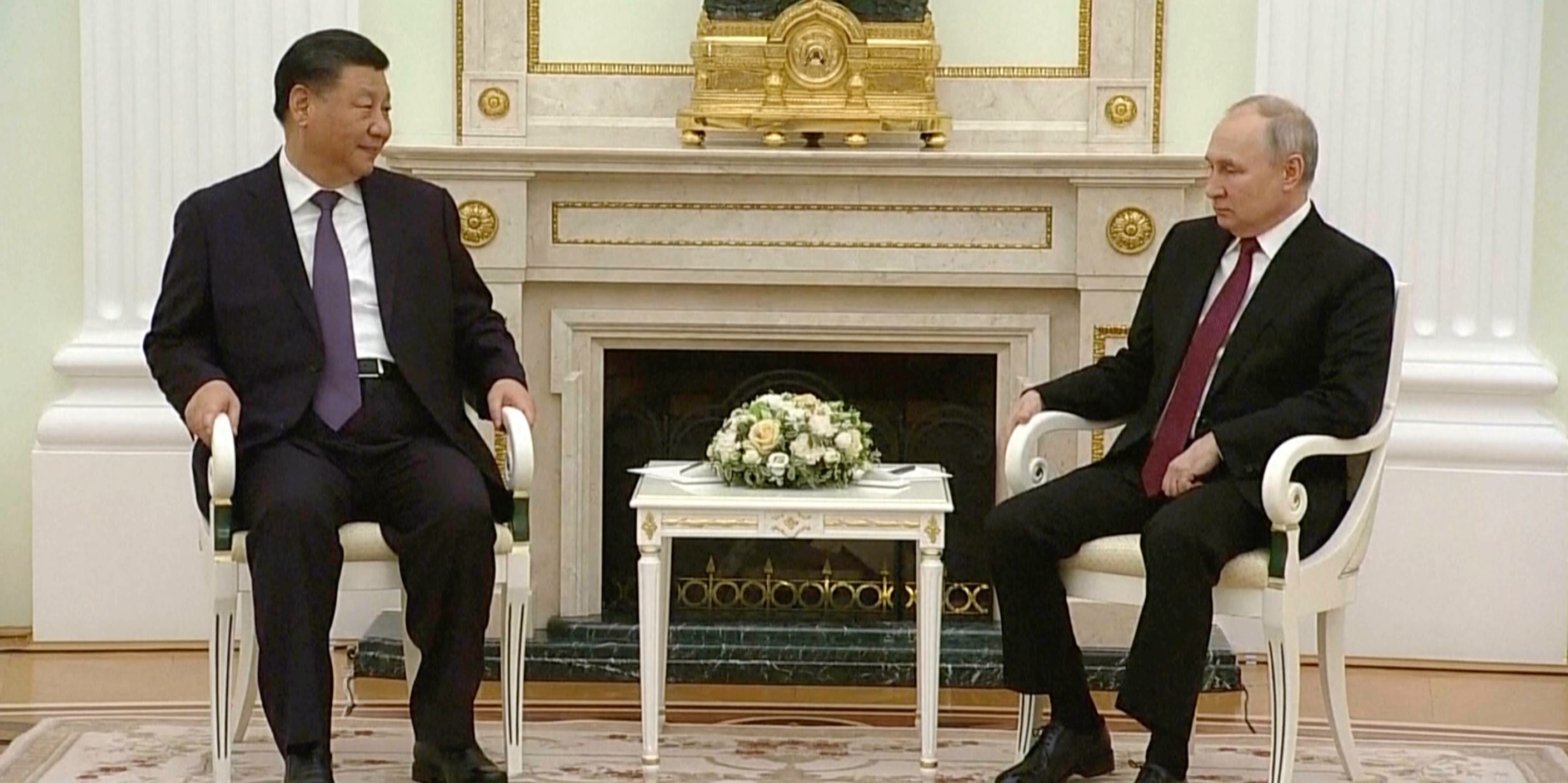Chinese-Russian trade hit its highest level since February 2022, data shows. Last month, trade between the countries rose to $20.83 billion. China’s imports from Russia rose 15.7%, and exports to Russia soared 90.9%. Loading Something is loading.
Thanks for signing up!
Access your favorite topics in a personalized feed while you’re on the go.
Bilateral trade between Russia and China rose to the highest level since the launch of the Ukraine invasion, deepening ties between the two nations amid an otherwise tense geopolitical scene.
Trade value climbed to $20.83 billion last month, Reuters reported, citing data from the General Administration of Customs. It’s the highest level recorded since February 2022.
China’s imports from Russia rose 15.7% in June to $11.28 billion amid continued demand for energy commodities, such as coal and discounted oil. That’s up from May’s 10% increase.
Meanwhile, China’s exports to Russia surged 90.9% to $9.55 billion, though this indicates a deceleration in growth from May’s 114% pace.
In January, Russian President Vladimir Putin touted plans for bilateral trade to reach an annual level of $200 billion.
Ties with China have become crucial to Moscow since its invasion of Ukraine in 2022 largely left it ostracized from its traditional Western trade partners.
Earlier this year, for example, Russia overtook Saudi Arabia as China’s top oil supplier. After the West imposed sanctions on Russian oil, the Kremlin has relied heavily on China and India to offset some of the export revenue it previously generated from Europe.
The reliance on Beijing has grown so much that some analysts have compared it to a vassal-like relationship that largely serves China.
Meanwhile, China’s relations with the West have also been under more strain. Notably, it has entered a tit-for-tat trade war with the US, which has curbed its access to semiconductor technology.
At the same time, European nations have emphasized a need to “de-risk” their economies from China, hoping to curb any excessive reliance on the country for production needs.
